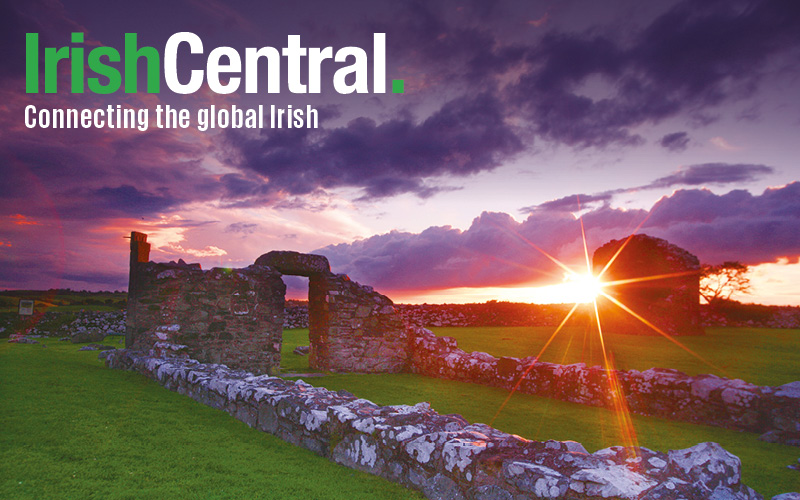Three high school students from Cork – Lauren Burke, Alex Whelan and Jennifer Chadwick – produced their first edition of the game Focail Iontacha with hand cut laminated cards and a game board made out of a cardboard box.
Two years on and the three girls, aged between 17 and 18, are setting off to Washington DC to represent Ireland at the Global Student Entrepreneur Awards (GSEA) with their literacy and numeracy Irish language game.
GSEA is global competition for high school, undergraduate and graduate students who own and operate businesses. The girls will compete against their peers from around the world for the chance to win capital and in-kind prizes from sponsor organizations.
Their game, Focail Iontacha, is a card game that uses the Irish language to promote literacy and numeracy in a fun and competitive way. The card game can be played by anyone from the age of six up, whether they are fluent or just have the “cúpla focail.”
The game involves the outwitting of opponents to be the first to use all of the cards you are dealt to make Irish word/words. The numeracy element comes from the score calculation as each player adds up the values displayed on the cards they used in each round.
Now in their last year of high school in Regina Mundi College in Douglas, Co. Cork, Alex spoke to IrishCentral in between the girls’ preparation for the trip to Washington and studying for their Leaving Cert Irish oral exam.
“The game came about in our business class when we were in Transition Year (fourth year) in school”, says Alex. “Our teacher wanted to enter everyone into a competition where students competed for a chance to appear on a TV show called 'Dragons' Den' ['Shark Tank'] with their product.”
“We brainstormed lots of ideas and decided to go with Focail Iontacha because government reports (such as Ref. Pisa Reports 2009) had shown disappointing scores in literacy and numeracy in Irish Students.
“Also, we knew as students, that there was a lack of resources for the Irish language,” Alex says. “Although it's our national language, Irish is often under appreciated. We wanted to create a game that would encourage people to learn Irish, in a fun way.”
From laminated cards and cardboard, the team worked hard to develop the product and to work on a glossier finish. “Starting up was pretty difficult in the sense that we were quite young (15 & 16) and had no business experience. We made our first prototype ourselves,” Alex continues. “We progressed through the regional and national rounds of the competition and by the time we appeared on 'Dragon’s Den' the game was a little more professional looking.”
The enterprise was awarded a $2,140 bursary from "Dragon’s Den" to develop the idea and has gone from strength to strength since, securing a deal with Irish bookshop chain Eason’s last year to stock the game.
They have now been chosen to represent Ireland at GSEA in Washington DC, overcoming competition from college students as the only team of secondary school students and the only all-female team in the Irish finals.
Despite their youth, the team has received a positive reaction from all the companies they’ve worked with. “Honestly, we've only had good experiences in the business world so far,” Alex says. “Cork is a nice place to do business and people are really helpful, maybe even more so because we are so young still.”
Establishing themselves as an Irish start-up and supporting other Irish companies was also very important for the team. Alex told IrishCentral, “We wanted to produce the game in Ireland to support Irish jobs. We had all the different components of the game made in different places as this was the most economical option.”
“The cards were made by Playprint Ltd in Dublin, the boxes were made by Smurfit Kappa, Cork & Dublin. The score pad and rules were printed by Tony Myles Printers, now Collins' Printers.”
“We pack all the games ourselves and they're sent off to be shrink wrapped.”
The Irish team will compete in the Global Finals of the GSEA this week, presenting and pitching their game to judges today in the semifinals, with hopes of making it through to the final on Friday.
“We hope to increase Focail Iontacha's profile in the States and among diaspora around the world.
“Ultimately, we would obviously like to walk away with one of the cash prizes and the opportunities that come with it, but we're delighted to get the exposure offered by the competition regardless of the outcome.”
Not fazed by the levels of success they've reached at such a young age, Alex recommends that young Irish people take the risk in developing a business idea. “I would say to other young people with similar ambitions that this is the best age to take chances and make mistakes,” she says.
“So if you think you have a genuine business idea, work out an honest business plan, talk to some professionals in the industry – most people are very willing to give advice to startups – I certainly would be – and always carry out market research before developing and investing.”
Whatever the outcome of the competition this week, Lauren, Alex and Jennifer are already planning for future expansion.
“We would hope to develop the game in other languages such as French, Spanish, German and Chinese.”
“We are also considering developing a mobile app version of the game to keep up with evolving technology.”
This will all be after concentrating on the Leaving Certificate, of course!
More information about Focail Iontacha and how it can be purchased can be found at their website www.focailiontacha.ie or at their Facebook page Focail Iontacha.




Comments